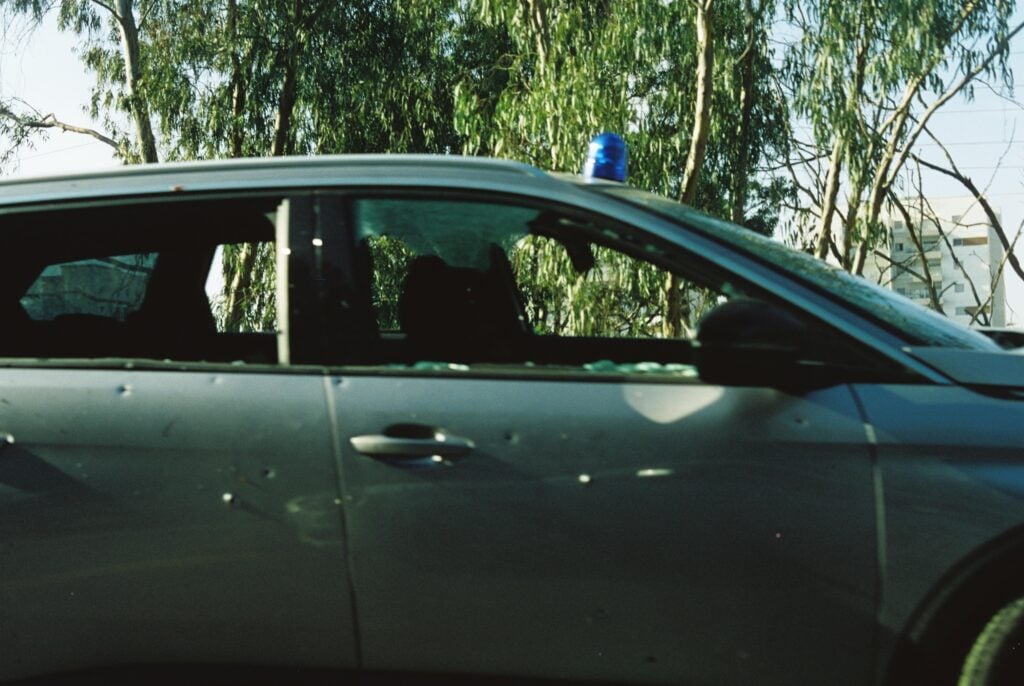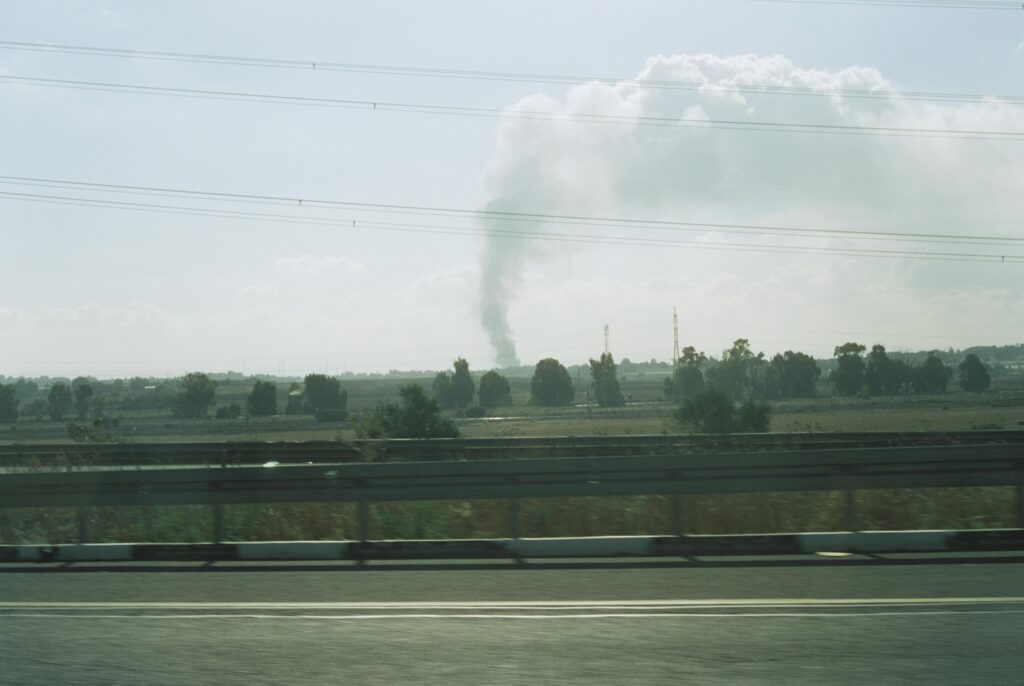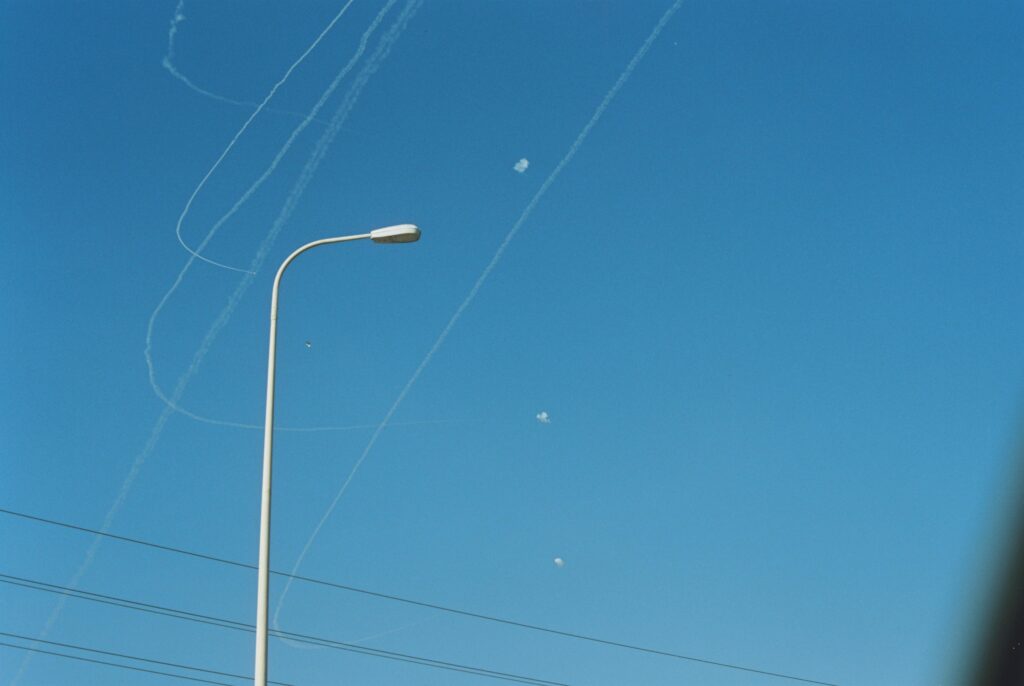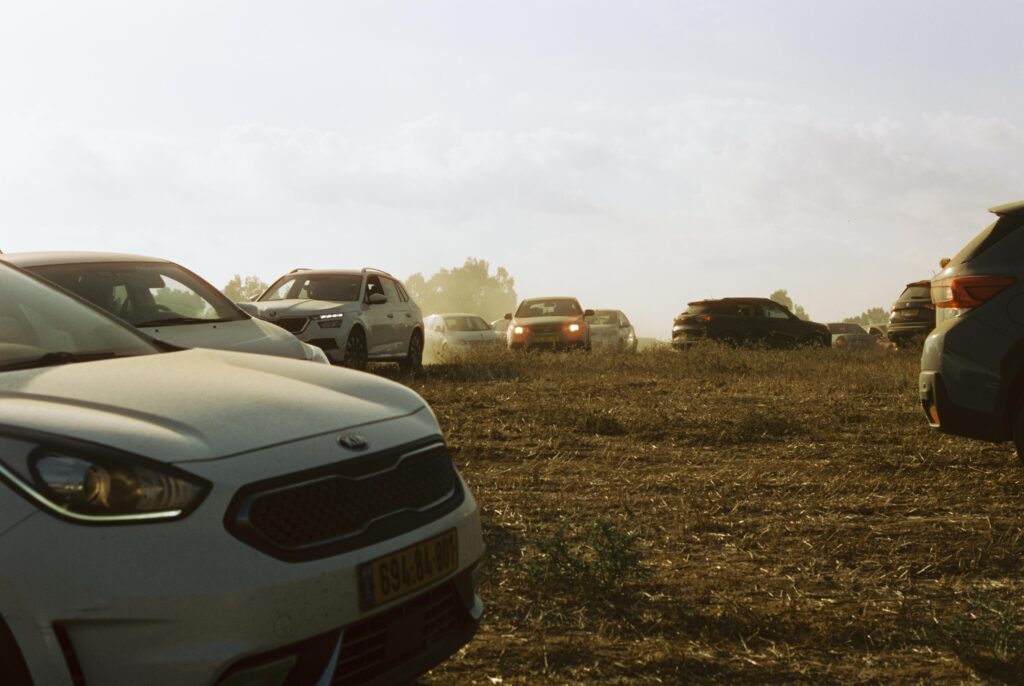Part of what makes visiting Israel different from visiting other countries is the knowledge that we are surrounded by everyday heroes. These are people who, when put to the test, make snap decisions, put others before themselves and save the lives of friends and strangers. Israel is full of ordinary people who have done extraordinary things.
One such hero is photographer Shye Klein, 27, a survivor of the Nova music festival on October 7. Klein has been vocal about his experience and has shared his story with many news outlets including MSNBC, CNN, BBC and more. I had the privilege of hearing Klein speak to a small audience in Tel Aviv during a month-long volunteer trip to Israel in July, and he wanted to share his story with The Jewish Link.

Klein was 26 at the time of the Nova festival attack, and a recent oleh from Toronto. He decided to attend the festival with seven other friends, one of whom was his cousin. Klein said that he’d agreed to attend even though music festivals weren’t normally his scene.
“I like to rollerblade, hike, walk my dogs, kayak, play video games and go to museums,” he said. “That’s sort of my vibe. So this was a whole new thing for me—a whole other wheelhouse.”
But when he got to the location of the festival, saw the lights and heard the music, he knew he was in for a good time. Klein had brought his camera with him, and some time after the festival had started at midnight, he parted from his group in order to mingle with new people and take their photos.
A little after 5:30 a.m., Klein got a text from one of his friends asking to meet her by the mainstage before heading back to their campsite. An hour later, the rockets had started and the music had stopped. The DJ came over the loudspeaker to announce a tzeva adom, a red alert, and security started ushering people toward their campsites amidst growing chaos.
Some people left right away. Others lingered in the hopes that this would all blow over and that the festival would restart. Klein recalled seeing people joking, laughing and having a good time.

“Most of the people there are Israeli,” Klein said, reflecting on the thought process of some of the festivalgoers at the time. “And what happens when there’s rockets? The Iron Dome strikes them down, and we blow up the guys who sent the rockets and go about our day. That’s how it’s been the few times I’ve experienced rockets … Why would anyone have any reason to believe that after rockets comes any form of danger?”
Klein and his cousin eventually decided that their group should leave. Rockets were flying less than 100 meters (about 328 feet) overhead. By 8 a.m., the group had split into two cars, and Klein was the designated driver for four of the eight in their group.
The road to the exit was packed with cars, but Klein was able to bypass most of the standstill traffic aimed for Route 232, now known as “the road of death,” and head in a different direction—one of many decisions that saved his and his friends’ lives.
“People in that situation were so tired and panicked … they didn’t realize that maybe the car in front of them, or to the left, or behind them, or to the right, was empty,” Klein said. “People were abandoning their cars and running away.”
The road north toward Kibbutz Be’eri was also blocked by police, which at the time Klein thought could have been because a rocket had landed in the road. “I didn’t understand that the reason for that is because Hamas is already there causing all sorts of destruction,” he said.
Klein’s only other option was to drive straight ahead toward a dusty field in the hopes of finding a farm or some sort of structure in which to seek shelter.
“We didn’t even make it maybe 30 meters [about 98 feet] into this field before my cousin’s girlfriend screams bloody murder at us to get out of the car … because we’re all being shot at,” Klein said. “Hamas is … shooting aimlessly at everybody in the field … and we all think it’s a better option to be split up instead of in this metal coffin that’s not even 10 feet wide.”
After a while, Klein’s cousin drove the car over and picked up the group. Klein was now in the passenger seat, which allowed him to document their experience through photographs and videos.
Eventually, Klein saw an orange grove in the distance. He told his cousin to drive toward it in the hopes of finding a road. It was then that he realized how close he was to the Gaza Strip. “It takes you longer to drive from Crown Heights to Manhattan than it would to drive from Gaza to the Nova site,” he said.
The group drove through checkpoint after checkpoint, through Netivot and then Sderot, all amidst rocketfire overhead and carnage in the road. Klein recalled seeing pillars of smoke in the distance, which he later realized were people’s homes being set on fire in different kibbutzim.

On the highway toward Sderot, the group noticed a silver car with two people standing next to it wearing dark pants and T-shirts. Their faces were covered and they were holding machine guns.
“The one guy on the left … we see from the tips of his fingers to the middle of his arm is red with blood,” Klein said. “The other guy is looking very much at us. He sees us. He clearly has his gun pointed right at us, and he knows we’re there because we’re the only people alive besides them within 100 meters. And nothing happens. They don’t shoot us. They don’t throw a grenade at us. They don’t try to run for our car. They don’t do anything.”
Klein later learned that those men weren’t terrorists but Shin Bet security officers, one of whom did not survive.
Klein and his group made it to his cousin’s apartment in Tel Aviv before 10 a.m. After confirming that the friends who had left in a second car were safe—they had been hiding in a bush for six-and-a-half hours—his next concern was for all of the other people he’d met and photographed at the festival.
Out of the 4,000 attendees and staff at the festival, Klein had met and photographed about 35 to 40 people. Out of those 35 to 40 people, two did not make it out of the festival alive. Those two people were Ran Shaffer and Dor Avitan. Klein printed and sent the photos he had taken of them to their families. He also keeps in touch with fellow Nova survivors.
Klein knew it was imperative that he share his story publicly, and in addition to interviews with multiple news outlets, he has been on speaking tours all across the U.S. and Canada, including at college campuses, where he says his presence has been well received. He is set to head back to the U.S. this October to continue to share his story.
When it comes to antisemitism in the U.S., Klein stressed that most people just don’t know what they’re talking about.

“People don’t understand, or they have no connection to this part of the world,” Klein said. “They look at things through a Western lens, and apply Western ideas and problem solving—it’s very frustrating. They don’t see Jews as a minority. Palestinians have it hard—they don’t have an IDF. The only people on their side with guns are purposely and willingly putting them in danger. They’ve never had a leader who says, ‘Maybe we should put in a sewer system,’ or ‘I think we need a fire department.’”
Life since October 7 has been different for Klein. It has been hard for him to find photography jobs, and to partake in activities he once enjoyed, such as cooking. Being in therapy and working with trauma specialists have helped him deal with his anxiety, PTSD and survivor’s guilt.
“It was really hard for me—it still is,” Klein said about how he felt hearing that Ran Shaffer and Dor Avitan didn’t survive. “How do you deal with the fact that you were the last person to experience their last moment of happiness? You—not a family member, spouse or girlfriend, father or mother. It was very hard to deal with.”
Elizabeth Zakaim is a former intern and editor at The Jewish Link.









